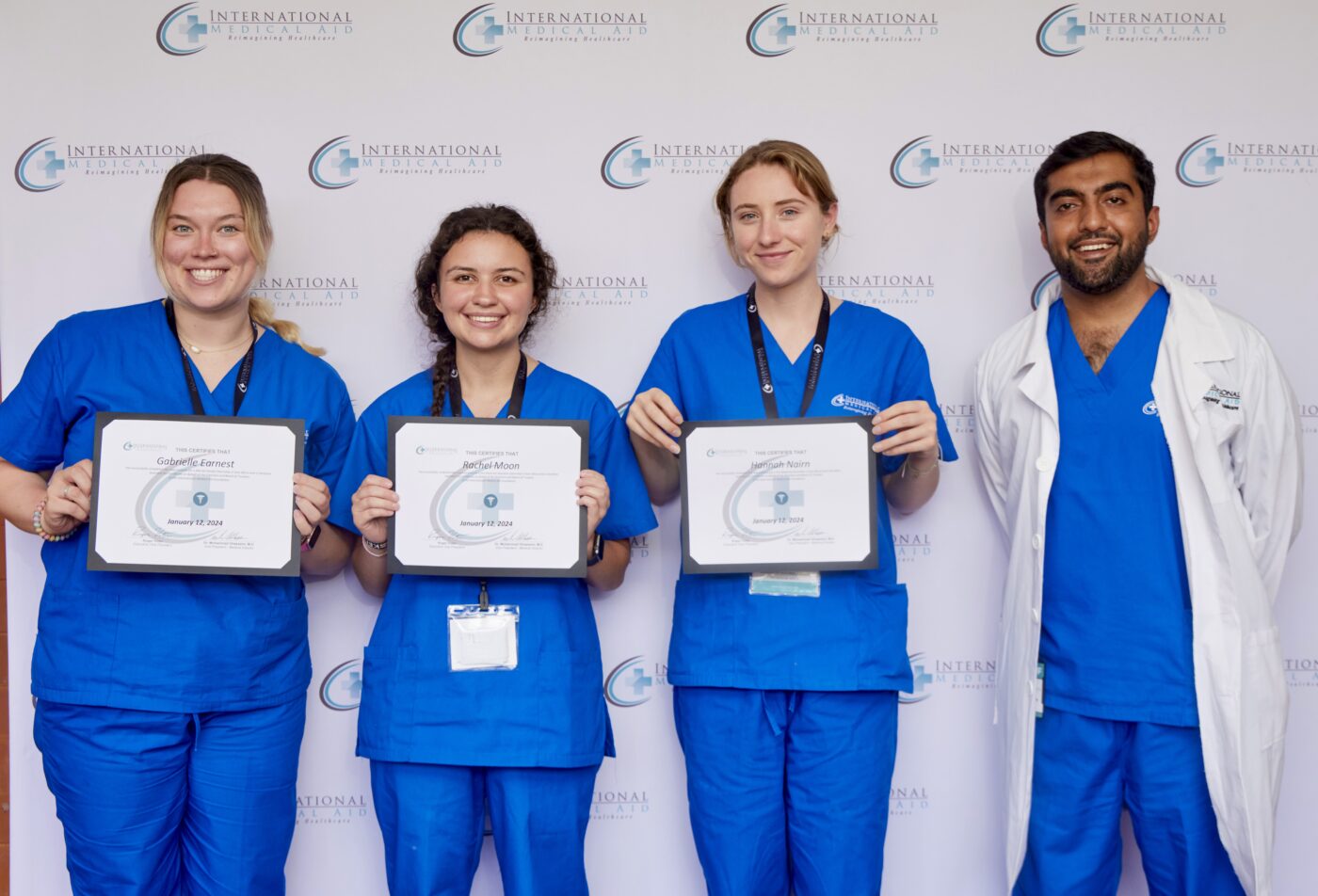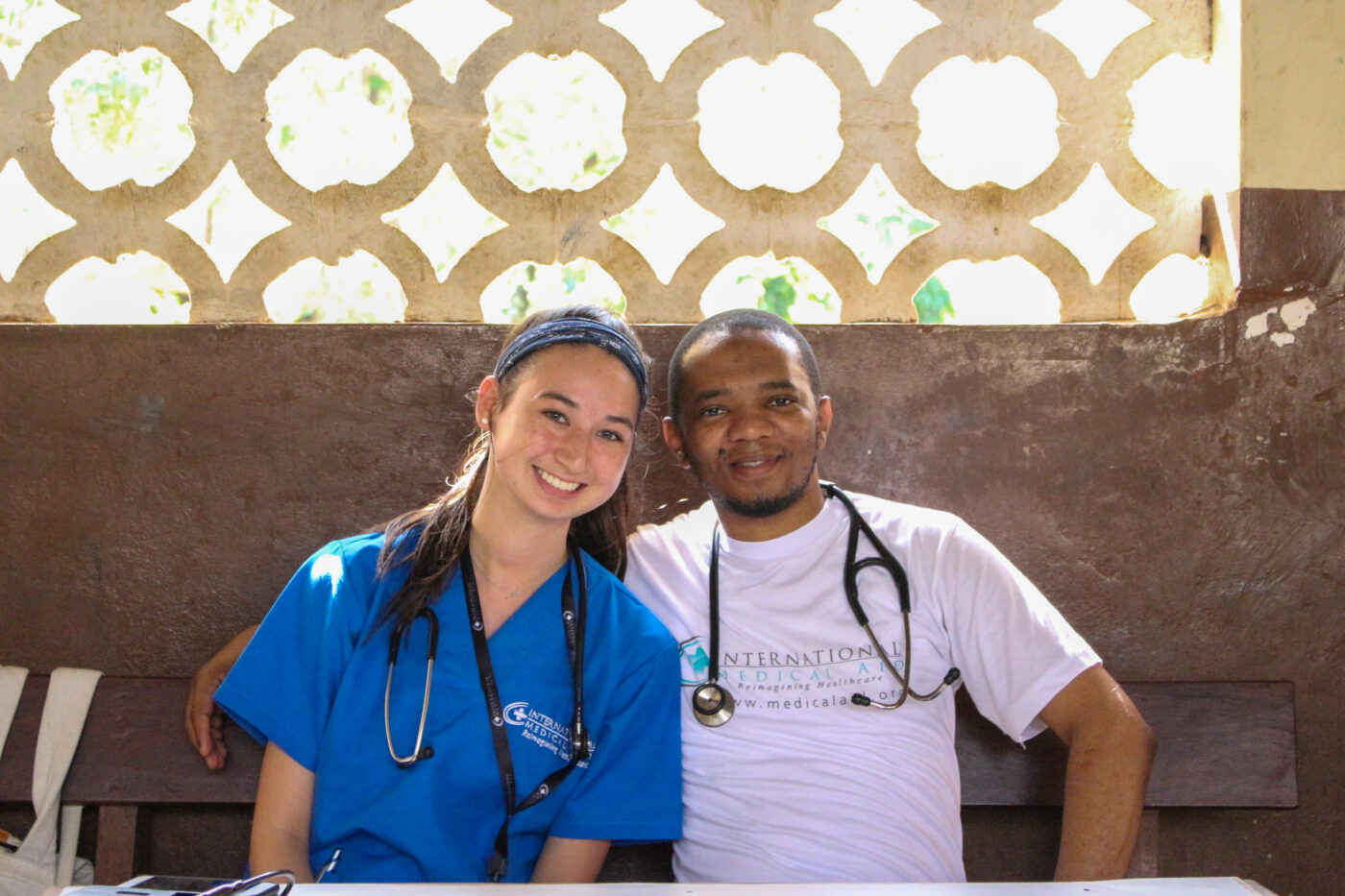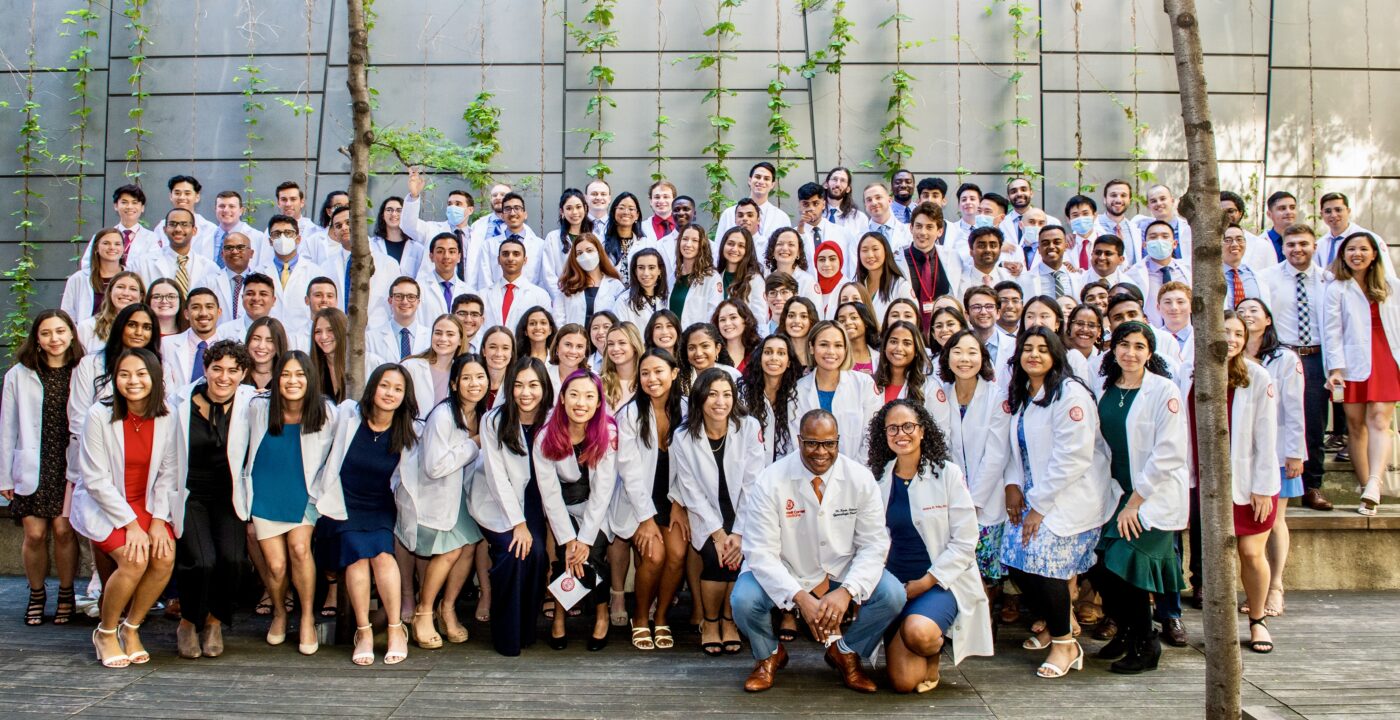Attending any interview session can be quite nerve-racking to just about any individual. Even with years of professional experience or having attended ten other interviews before, each interview will always carry some intimidation.
You may be filled with worry about passing the interview, or impressing the interviewer. You may also be doubtful of all your responses or get unnerved by the interviewer’s facial expressions. All these things will play a part in your interview results.
Research shows that only 41% of applicants “pass” the medical school interview questions. Unfortunately, some of those who fail may have failed due to answering the questions wrongly or lacking confidence. To increase your chances of nailing the interview, pre-meds are advised to prepare for the common questions asked in medical school interviews. Below are twenty three questions to get you started.
1. Tell Us About Yourself
This is the first most common question that you’ll receive. While it seems deceptively easy, it is one of the hardest questions to answer. Here the interviewer wants you to briefly tell them about your identity, experiences, hobbies and your personality.
From the moment you start responding to this question, the interviewer will listen in to see if there’s something about you that fits their ideal student morals and personality. Talk about your past, present and future in that order.
2. Why Did You Choose Medicine?
This question requires a heartfelt answer. Something happened in your life to trigger the desire to become a doctor. Whether a loved one fell sick, or you went through a medical challenge, and so forth. Let the interviewer know. A good tip is to give details for the incident. Show emotion with your facial expressions as well as with your words, but don’t overdo it.
3. Why Would You Like to Join Our Medical School?
This is another trick question that interviewers ask to see if you know about their institution. If you don’t know anything about their school, then it wouldn’t make sense to blindly apply. Also, not having an answer for this shows them that you are ignorant and not proactive at all.
To answer this question, make sure that before the interview you have talked to a few alumni of the school and found out the best part of studying there. It would also be good to praise them a bit by pointing out the unique features that the school has and others don’t.
4. Describe The Qualities of A Good Doctor?
A physician should be empathetic, personable, and a great listener to effectively attend to the needs of their patients. While extensive scientific knowledge about treatment of all diseases is vital, medicine encompasses the feelings, experiences, and interpretations of human beings, especially in moments of desperation, fear, doubt, and anxiety.
5. How Do You Spend Your Spare Time?
Here the interviewer wants to know how productive you are. Don’t fake it and say how every minute of your life is all about medicine. You can talk about book reading, cycling, going to the gym swimming, cooking, and many more. Extra curricula activities show the interviewer that even when you’re off work, you’ll still be doing things that keep you healthy and energize your mind and body. Nobody likes a lazy doctor.
6. How Do You Deal With Stress?
As a doctor, working in stressful conditions is the norm. When everyone else gets depressed, they look up to you for guidance. A doctor’s ability to work in such conditions can reassure people and most importantly, save lives. Let the interviewer know about activities or methods you use to get rid of stress, or to prevent stress. Your method can be as simple as always being optimistic.
7. What Are Your Strengths?
This is an opportunity to highlight the strengths that will make a huge impact on your career as a doctor. If you are a great team player give examples of instances where such personalities have come in handy. Your ability to work long hours (even overnight) also comes to the fore as the nature of your work will demand it.
8. What Are Your Weaknesses?
Acknowledging your weaknesses during the medical school interview questions is an indication that you are willing to address them. For example, if you get stressed out easily, explain that since you acknowledge that this trait is detrimental, you’re working on it.
If you sometimes lack the confidence to undertake surgical operations (unaided), explain that you will work under the senior surgeon’s tutelage until you are sure that you can handle it alone. Explain the measures you have taken to address such weaknesses and your progress so far.
9. How Do You Define Success?
Doctors know that undertaking one successful operation does not define them, as patients react differently to various treatments. As such, they must commit themselves to life-long learning to be successful. Gaining extensive knowledge is the best investment that a doctor can make.
10. Who Is Your Mentor?
In addition to your mentor, you can highlight an influential person in the medical profession. Most importantly, name the scientist that discovered key vaccines in the past. Highlight various pandemics that ravaged the world and cite the people that developed the effective remedies.
11. Describe Your Past Experiences
Clinical experience will come in handy in your career. During your volunteer work, give examples where your ability to think critically helped save someone’s life. For example, you can highlight the measures you took when you noticed that a patient’s temperature or blood pressure was beyond (or below) the acceptable levels.
12. Have You Done Volunteer Work Before?
Your volunteer work is an opportunity to get real-life experience. Use this question to highlight the key lessons you learned during this period. If you worked long hours, tell how you dealt with burnout. Also highlight whether you have worked with world-renown healthcare bodies such as the World Health Organization (WHO), or Center for Disease Control and Prevention (CDC).
13. Do You Have Research Experience?
Clinical research is critical as it helps doctors to determine whether new treatments are necessary. Research should be ongoing since pathogens tend to develop resistance to current treatments. Show the interviewer that you go an extra mile to research diseases and treatments and how they can be better. This shows curiosity and pro-activeness, which are really good qualities.
14. How Will You Fit In Our Institution?
While your good grades and a strong background in science is vital, you need other traits to stand out among the other applicants. That’s where your passion comes in.
Also, you must highlight why you think that this medical school will help you to achieve your dreams.
15. How Do You Deal With Failure?
Doctors do everything in their power to avoid failure. The best way to avert failure is to understand what can go wrong and take the necessary steps to avoid it. Failure can result from a misdiagnosis, delayed treatments, or defective medical equipment. Describe your ability to pick yourself up when such setbacks occur.
16. What Other Skills Do You Have?
Attending medical school is just one step to becoming a doctor. The admissions board wants to also know what type of a doctor you will be. Do you have leadership skills? Name them. Are you a team player? Don’t be shy to name all your valuable skills.
17. What Do You Think About...
This question requires a heartfelt answer. Something happened in your life to trigger the desire to become a doctor. Whether a loved one fell sick, or you went through a medical challenge, and so forth. Let the interviewer know. A good tip is to give details for the incident. Show emotion with your facial expressions as well as with your words, but don’t overdo it.
A. Abortion
The termination of a pregnancy to prevent the birth of a child is unethical. Highlight the laws that deem abortion unlawful unless the pregnancy poses life-threatening risks to the mother.
B. Euthanasia
Just like abortion, the termination of an ill person’s life is prohibited by law. However, the laws that govern euthanasia vary in different states. Cite the states that prohibit and those that allow euthanasia in America.
C. Stem Cell Research
Using stem cells to search for new vaccines or improve the current is a great way to win the fight against diseases. In the wake of pandemics that threaten human life, your passion for stem cell research will open the door to lots of possibilities in this field.
D. Healthcare Access
Currently, only means that only some people can afford quality healthcare. This means that the government should evaluate insurance policies that help people save money for healthcare to avoid suffering when the needs arise. Give your views in support of the healthcare policies of Obamacare.
18. Why Should We Give You An Opportunity?
This question allows you to shine as you highlight the combinations of skills that make you stand out from the crowd. These include the ability to work in a team and deliver exceptional results. Showcase your contribution to such teams in the past.
19. Have You Applied to Other Institutions?
This is the opportunity to tell what you’re interested in. Since you’ve done your homework, you know what every medical school offers. Impress your interviewers by elaborating why this medical school stands out to you in terms of curriculum.
20. What If We Reject Your Application? What Next?
Tell the interviewers that your dream will still be alive even if you are not accepted. You will reexamine your application and try again. With this you’ll show them your passion and determination for both the course and their school.
21. If Not Medicine, What Else Would You Pursue?
Mention another profession in the healthcare field. Nursing and pharmacy are great choices since they are equally intriguing. However, after giving your answer, conclude with a simple statement showing that a plan B is far from your thoughts and that you’re willing to do anything to get into medical school.
22. What Is The Most Pressing Health Issue Today?
The high cost of medical care is a pressing issue that needs to be addressed. Highlight that innovation and research can help to reduce the cost without compromising the quality of healthcare.
23. What Are Your Specific Goals In Medicine?
Your goals must be in tandem with the overall goals of Medicine. These goals include relief of pain, prevention of diseases, and the promotion of health.
Master Your Medical School Interview with International Medical Aid
You have aced the MCAT, polished your resume, and now face the ultimate hurdle: the medical school interview. With only 41% of applicants passing this stage, according to recent studies, preparation is everything. International Medical Aid (IMA), a not-for-profit founded by Johns Hopkins alumni, goes beyond the basics to equip pre-med students with cutting-edge strategies and global interview perspectives. Whether you are eyeing an MD or DO path, this section unveils how to shine, backed by IMA’s proven admissions expertise.
Why Interviews Are Make-or-Break
The interview is not just a formality; it is your chance to prove you are more than grades and scores. A 2024 AAMC report reveals that 78% of medical schools now weigh “interpersonal fit” as heavily as academics, up from 65% in 2020. Today’s doctors need resilience, cultural fluency, and emotional depth—traits that cannot be faked. IMA’s global health internships and consulting services prepare you to showcase these qualities, turning nerves into confidence.
Advanced Prep Strategies
Decode the MMI Format
Multiple Mini Interviews (MMIs), which are short, scenario-based stations, are surging in popularity. According to the AAMC, 60% of U.S. medical schools now use MMIs to test ethics, teamwork, and quick thinking. For example, imagine being asked to mediate a situation where a patient refuses treatment. IMA’s mock MMIs, led by seasoned mentors, simulate these high-pressure moments to help you craft concise, thoughtful responses.
Pro Tip: Practice the STAR method (Situation, Task, Action, Result) to structure your answers. For instance, “In Kenya with IMA, I calmed a stressed patient by explaining their care plan, which eased tensions.”
Leverage Global Experience
Admissions panels highly value global health stories—65% of them now ask about cross-cultural exposure, according to a recent NAAHP survey. IMA’s programs in East Africa, South America, and the Caribbean let you shadow doctors tackling unique challenges, such as managing malaria in Mombasa. Incorporate these experiences into your answers, for example: “Observing a clinic in Peru manage limited resources taught me adaptability, a skill I will bring to my future practice.”
How It Helps: It connects your passion to real-world impact, setting you apart from other candidates.
Nail Virtual Interviews
A significant portion of interviews now remains virtual. Technical issues such as glitches or awkward silences can hurt your performance. IMA’s virtual coaching helps you optimize your online presence by improving aspects like lighting, eye contact, and troubleshooting common technical challenges. Record practice sessions to identify habits such as fidgeting or excessive filler words and work to eliminate them.
Quick Fix: Test your setup a day before the interview. Ensure you have stable Wi-Fi and a quiet space.
Hot Topics to Prepare For
Technology in Medicine
Interviewers may ask for your perspective on the role of technology in diagnostics and patient care. Many schools have added tech-related questions to their interview format. IMA interns observe modern tools in action—for example, triage apps in Uganda—which can provide valuable insights for your responses. You might say, “I saw how technology flagged critical cases, yet human judgment was essential in deciding care—balance is key.”
Health Equity
With disparities in healthcare under constant scrutiny, you might face questions such as, “How will you address underserved populations?” IMA’s work in low-resource clinics equips you with answers like, “In Ecuador, I helped deliver care to rural mothers—true equity starts with access.”
Burnout and Resilience
Doctors face burnout, and interviewers want to know that you can handle long, challenging shifts. Drawing on IMA experiences, you might explain, “In Kenya, I managed 12-hour days by leaning on team support and practicing mindfulness—skills that will help me maintain resilience in my career.”
IMA's Tailored Support
Mock Interviews with Feedback
IMA’s admissions consulting includes one-on-one mock interviews with experts—MDs, DOs, and former panelists. In 2024, 92% of IMA clients reported higher confidence after their sessions. Detailed critiques cover tone, content, and body language, helping you avoid common pitfalls such as an overly nervous smile.
Personal Statement Tie-Ins
Your interview builds on your application. IMA helps align your personal narrative—perhaps centered on a transformative internship in Peru—with common interview questions like “Why medicine?” or “Why our school?” One 2024 alumnus noted, “IMA showed me the global reach of medicine, which perfectly matched my ambitions.”
Post-Interview Reflection
If you stumble on a question, IMA’s team helps analyze what went wrong and prepares you for future interviews. Persistence is key; data from the AAMC indicate that 25% of rejected applicants reapply successfully after improving their applications.
Standout Interview Tips
- Ask Smart Questions: End your interview with questions such as, “How does your school integrate global health into training?” This shows your curiosity and aligns with IMA’s ethos.
- Stay Current: Reference recent health news (for example, new telehealth laws) to demonstrate that you are informed and engaged.
- Be Authentic: Interview panels can spot overly rehearsed answers. Share a genuine struggle, such as overcoming exam stress, and explain how IMA’s mentorship helped you overcome it.
Choose A Medical School That Suits Your Specialty
Medicine is a career that allows you to harness the clinical and practical skills, as well as develop the personal attributes you need to become a doctor.
Every institution has a website. Please go through their site to see what they are all about and what they offer. Visit the school in person before the interview and see if the environment would suit you. What you learn will also help with the medical school interview questions.
Additional Reading
Mental Health & Wellness
The mental health field plays a crucial role in comprehensive healthcare, focusing on emotional, psychological, and social well-being. If you’re considering a career in psychiatry, psychology, or mental health support, the following resources will help you explore key pathways, prepare for internships, and understand how mental health care integrates into the broader healthcare system.
- How and Where to Find Mental Health Internships
- The Difference Between Psychiatry and Psychology
- Mental Health Volunteer Opportunities for Students
- Should You Become a Psychiatrist or Psychologist?
- How to Deal with Stress in Medical School
Dentistry & Pre-Dentistry
Dentistry offers a unique blend of clinical science, artistry, and patient care. For students pursuing dental careers, it’s important to gain shadowing experience, understand the application process, and plan strategically for dental school admissions. These resources are perfect for anyone preparing for a future in oral health professions.
- Is Dentistry Your Calling? Make Sure with a Pre-Dentistry Internship
- Applying to Dental School with ADEA AADSAS: Your Comprehensive Guide (2024)
- Dental Schools in the U.S.: A State-by-State Guide (2024)
- Dental Shadowing Opportunities and What to Expect
High School Programs
Starting early can give future healthcare professionals a major advantage. High school internships, pre-medical experiences, and international service trips provide an important foundation for building strong college and medical school applications. These articles are designed to guide high school students and their families as they begin exploring healthcare careers.





